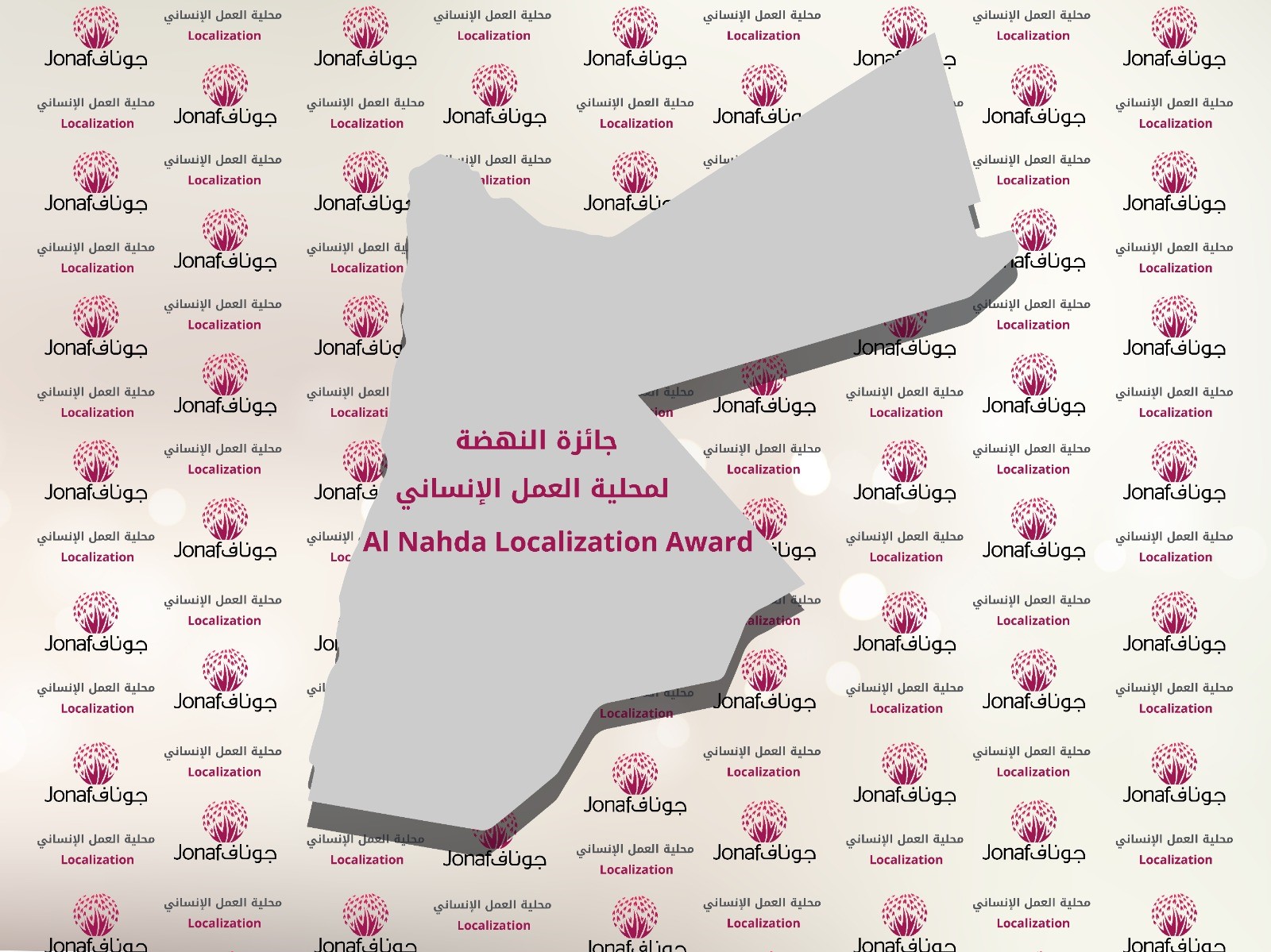Al Nahda Localization Award

Background
Discussions on localization have been going on for over 25 years. However, it is only in the last few years – following the launch of the Grand Bargain in 2015 and the World Humanitarian Summit in 2016 – that concerted efforts to reform the humanitarian system’s effectiveness and efficacy for the future began to transpire. The Grand Bargain 2.0 re-emphasized the importance of localisation. As a result, amplified attention was steered toward its application. After all, localization aims at increasing participation, visibility, and leadership of local actors, in response efforts to various humanitarian crisis and in development interventions around the world.
Civil society organizations at national and community level are the principal actors in the local humanitarian responses and are considered more effective and legitimate due to their proximity, cultural and linguistic understanding as trusted partners to the community. The Arab Renaissance for Democracy and Development (ARDD) and Jordan National NGOs Forum (JONAF) have been devoted advocates of the localization of development, humanitarian, and emergency relief efforts through their programs, platforms, outreach, and partnerships. As such, localization can only truly happen when national actors are included in both research and analysis phases of tackling some of the most pressing challenges our world faces today.
At the same time, local actors’ influence on localization remains limited in its ability to shape the humanitarian response in any given context. According to the Pathways to Localization report, published in October 2019, respondents of the Accelerating Localization through Partnerships research ranked UN agencies as having the greatest influence in government and donor humanitarian funding decisions, followed by international NGOs. Long-term enhancement of the capacity of local actors is paramount for localization to thrive and prove its effectiveness, as introduced in the Grand Bargain.
In its interventions, JONAF’s work has been based on partnerships and collaboration with government officials, decision makers at both national and local levels, and the international community; the aim was to strengthen the prospects of localization in Jordan. JONAF also emphasizes the need for equal partnerships between INGOs and LNGOs in emergency and development response, including decentralizing relief planning in favor of local partnerships for context-driven, multi-stage, long-term sustainable interventions.
Over the last decade, Jordan has been affected by a succession of crises, including waves of refugees, economic crises and, most recently, the Covid-19 pandemic. Supportive partnerships built during this period have helped facilitate and alleviate the magnitude of the crises and enabled an accelerated localization evolution.
Award Objective
ARDD, JONAF’s coordinator, along with JONAF steering committee are launching “Al Nahda Localization Award” as a means of recognition and appreciation of the significant efforts of stand-out individuals and/or organizations who champion and advocate for localization, and of their role in advancing and strengthening local civil society organizations and actors, at both local and international levels.
Award Evaluation Criteria
ARDD and JONAF’s localization award acknowledges the efforts of those actors (individuals or organizations) who have made an exceptional and meaningful contribution to strengthening localization at national and regional levels. The criteria should consider a combination of distinguished courage and creativity to advance localization, the power to inspire others, the ability to lead as well as work as part of a larger community of practice, and highest levels of integrity in critical contexts. The award is open for anyone who works for or is part of any humanitarian and development community, including local NGOs/INGOs’ staff and volunteers, suppliers of the sector, community organizations and/or government organizations and donors.
The nomination and selection of those who the award will be granted to is appraised based on the following criteria:
- Leaders whose career and vision have supported and empowered localization
- Leaders who contributed to increasing the formal presence of local and national NGOs amongst regional and global bodies
- Actors who engage in, and support diverse approaches to reinforce active local civil society participation in local, regional, and global fora, and events
- Actors who facilitate practical and innovative approaches that contribute to strengthening local civil society efforts and capacities
- Outstanding contribution to humanitarian and/or developmental work in empowering local civil societies in Jordan
- Sustainable impact of the actors on the civil society in Jordan
- Efforts exerted by actors that inspired others to others to act and take responsibility
Final Remarks
ARDD believes that the centrality of localization lies in its pivotal role to balance the power dynamics of underlying inequalities (larger INGOs and their smaller national and local counterparts) that hinder the effectiveness and efficacy of humanitarian and development work at local level. Working with and strengthening the capacity of national and local organizations is fundamental. Rethinking the mode of operation, of working in parallel to or in isolation of local actors and adopting a true partnership modality, can only elevate the effectiveness of humanitarian aid work and reinforce the underlying Grand Bargain localization principles.

